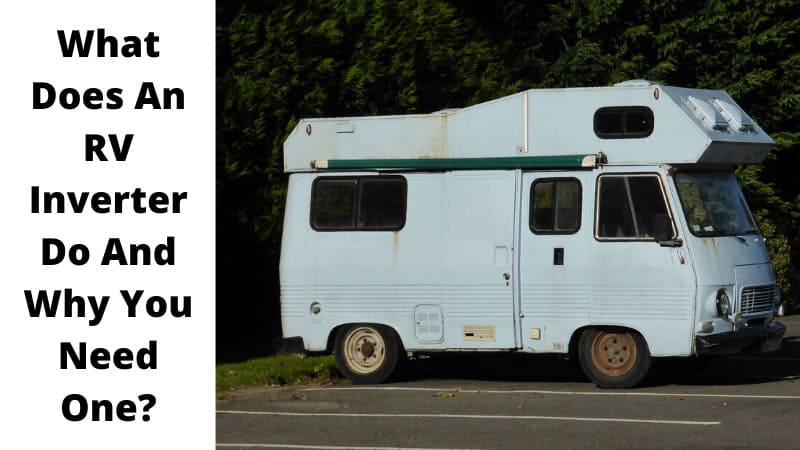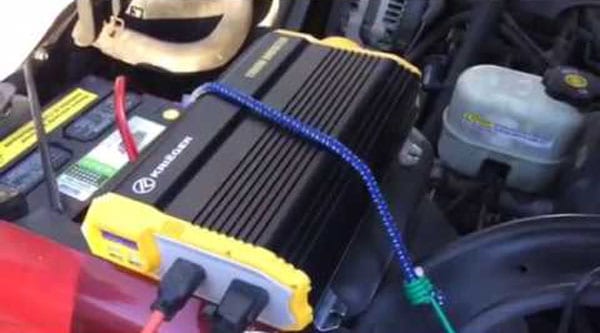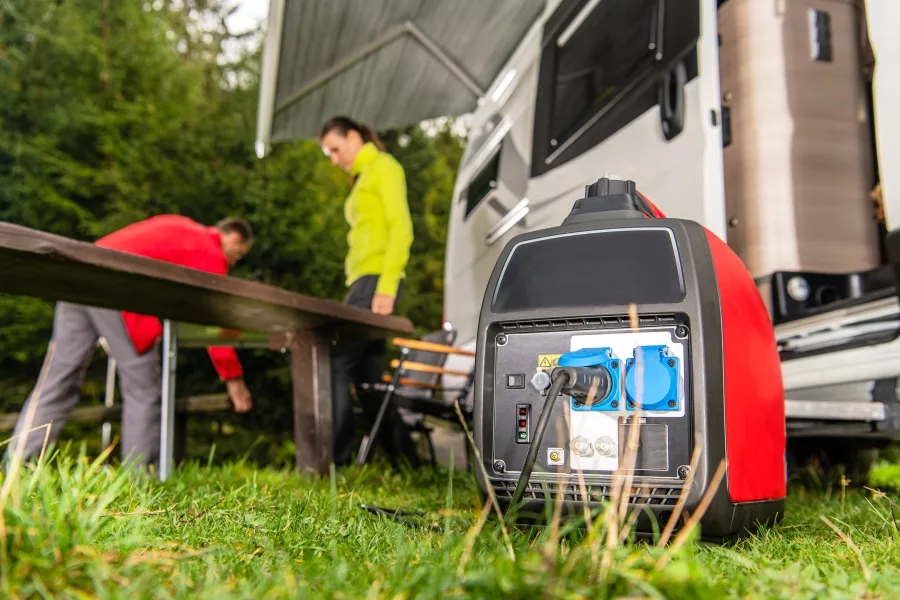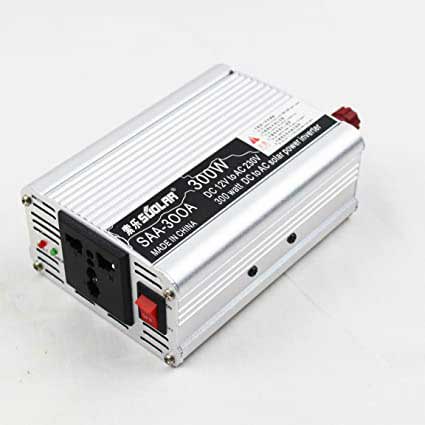What Does An RV Inverter Do And Why You Need One?
by Alice Davis
If you're planning to get your first RV, you might have heard that one of the must-have items is an RV inverter. This is because it helps power all the appliances and devices you bring on-board your RV, including TVs, DVD players, microwaves, refrigerators, mobile devices, and more.
But what exactly is the inverter? How does it work? And do you really need one? Join us below as we walk you through a beginner-friendly guide to inverters for recreational vehicles.
Contents
What Is An RV Inverter?
An RV inverter, also referred to as power inverter, is an electronic module that enables you to run all the standard domestic devices in your RV when living off the grid.


A typical RV inverter takes the 12V DC (direct client) from your RV batteries and converts it to 120V AC (alternating current).
Having an inverter is essential if you plan to camp off-grid or in a campground without electricity hookups and still want to watch the TV, charge your mobile devices, power your microwave and so on.
How Does An Inverter Work?

We have already stated that an inverter converts DC current into AC current. To understand how it works, you first need to understand the DC and AC currents.
DC (direct current) refers to a current that flows in one direction. It usually comes from the battery or solar panel and constantly flows at around 12V. Some electric are engineered to run on DC current. These are usually the items that require little voltage to run/operate. Examples include water pump bathroom and kitchen vent fans, some detectors, LP leak detectors, etc.
AC (alternating current) on the other hand keeps changing direction and is usually at 120V. Larger electric items that require way higher voltage rating to run and operate are designed to run off the AC current. Examples include the microwave, wifi booster for RV, refrigerator electrical setting, your TV, DVD player. You'll also need AC power for using the RV air conditioner safely and reliably.

You'll find that most of the appliances on your recreational vehicle run on an alternating current-including the RV refrigerator, TV set, DVD player, microwave, air conditioning unit, PC, mobile devices, etc.-which explains why you need to convert the DC power produced by your batteries into AC.
Depending on the wattage of the inverter you have, you'll be able to reliably power most of the electric items onboard your RV without necessarily running a generator or plugging to the shore power.
Keep in mind that most recreational vehicles now come equipped with an inverter (which further shows it's an essential part of any RV vehicle). However, keep in mind that the inverter that comes with your RV isn't standard and you can always replace it with a new one that meets the power needs of all your RV's appliances or electric items.
The inverter should NOT be confused with a converter though…the latter does the exact opposite of what an inverter does. It changes the 120V AC and converts it to 12V DC to help supply power to the 12V circuits in your RV as well as your RV batteries.
Do You Really Need An Inverter in Your RV?
Now that you know what exactly an RV power inverter is, what it does, and how it works, you might be asking yourself if you really need one in your recreational vehicle.
We have just hinted above…most RV now come armed with a power inverter-this simply means that the manufacturers understand that this tool is a crucial part of the recreational vehicle.'
As long as you have appliances and electric devices on-board your RV that run and operate on AC power, and you'll be boondocking or camping in areas without electricity hookups, you'll absolutely need an inverter to convert the battery's DC to AC for running your appliances.
Even if you go camping in areas where electricity available or have a generator, we still believe that having a power inverter is a wise idea. Recreational vehicles have for long been subject to power outages due to reasons such as pulled plugs, stalling generators, and even unreliable campground electricity hookups.
Instead of going through your camping days without electricity, why not hook up an inverter to your RV battery and enjoy power throughout?
Choosing The Best Inverter For Your RV
Assuming you have already decided that you wanted to hook an inverter to your RV battery, you'll need to know that not just any inverter you come across is suitable for your RV.
In this section, you'll discover the MOST important things to focus on when picking the right inverter for your RV…
Type of Inverter
Firstly, you'll need to choose between a pure sine wave and modified sine wave inverter. These two models have completely different waveform outputs, which can hugely affect how they run your appliances.
An inverter with pure sine wave inverter outputs a waveform that runs and down in smooth and rounded motion. A modified sine wave inverter, however, tries replicating the pure sine waveform but usually makes a straight line and not a wavy one (i.e., it looks like a blocky on the graph). This can reduce the amount of power output and cause damage to some of your electric items. other items might not even work with this inverter.
To be on the safe side, we urge you to go with a pure sine wave for powering items like TV, laptop, refrigerator, air conditioner, high-powered coffee maker, etc.
Size of Inverter
You'll also need to decide what size of inverter you need for your RV.
Not the physical size of the inverter…but the number of wattages it produces. The ideal size for your recreational vehicle depends on the number of items you're running in your RV at a time.
You can determine the right size of inverter by getting the sum of the wattages of all the appliances on your RV. Don't forget to account for the fact that some items require higher wattage to start. To be on the safer side, you'd want to add 15-20% more to your total sum to cater to such overheads.
Final Verdict
A power inverter is a must-have tool for any serious RVer. This crucial device helps convert your battery's direct current (DC) to alternating current (AC) for running the electric appliances or electric items in your RV.
In this guide, we have shed out some light on how a typical invert works, why you should consider getting, and some important things to consider when choosing the right inverter for your RV.
If you want to enjoy the luxury of home-from watching your favorite movies to popping popcorns in the microwave, gaming, watching TV, and more-while living in your RV far away from home, then an inverter is a must-have item!
 |
 |
 |
 |
 |
 |
 |
 |

About Alice Davis
Alice is a writer who lives in the City of Long Beach. She has a husband, an exceptionally small chihuahua, and 15-pound Maine Coon. Alice got her bachelor of science in biological science from UC Berkeley. Now, she likes writing about a lot of things; including but not limited to technology reviews, science stuff, and anything food-related.
Leave a Reply
Just Gears and Gadgets
You can get FREE Gifts. Or latest Free phones here.
Disable Ad block to reveal all the info. Once done, hit a button below
 |
 |
 |
 |